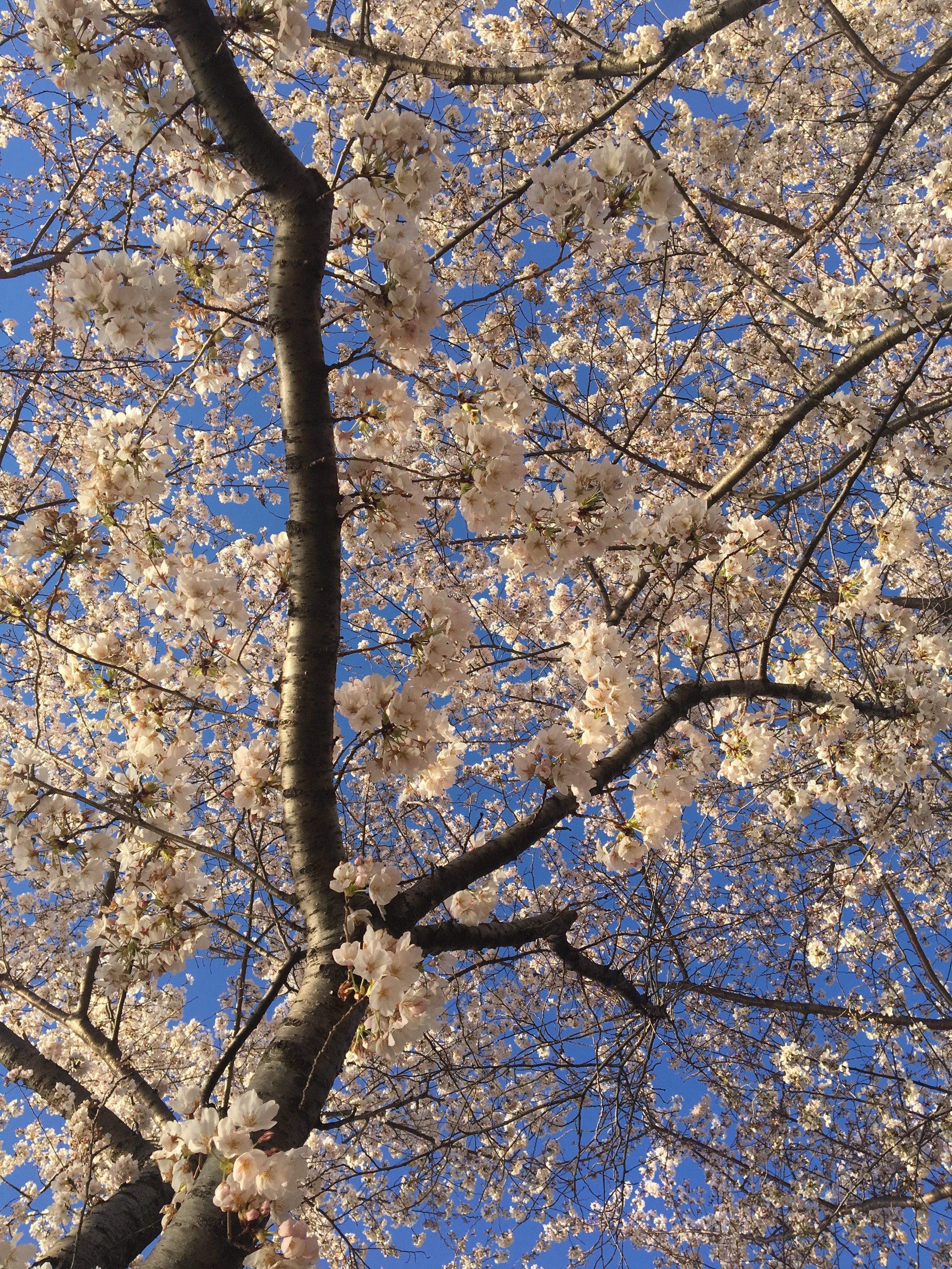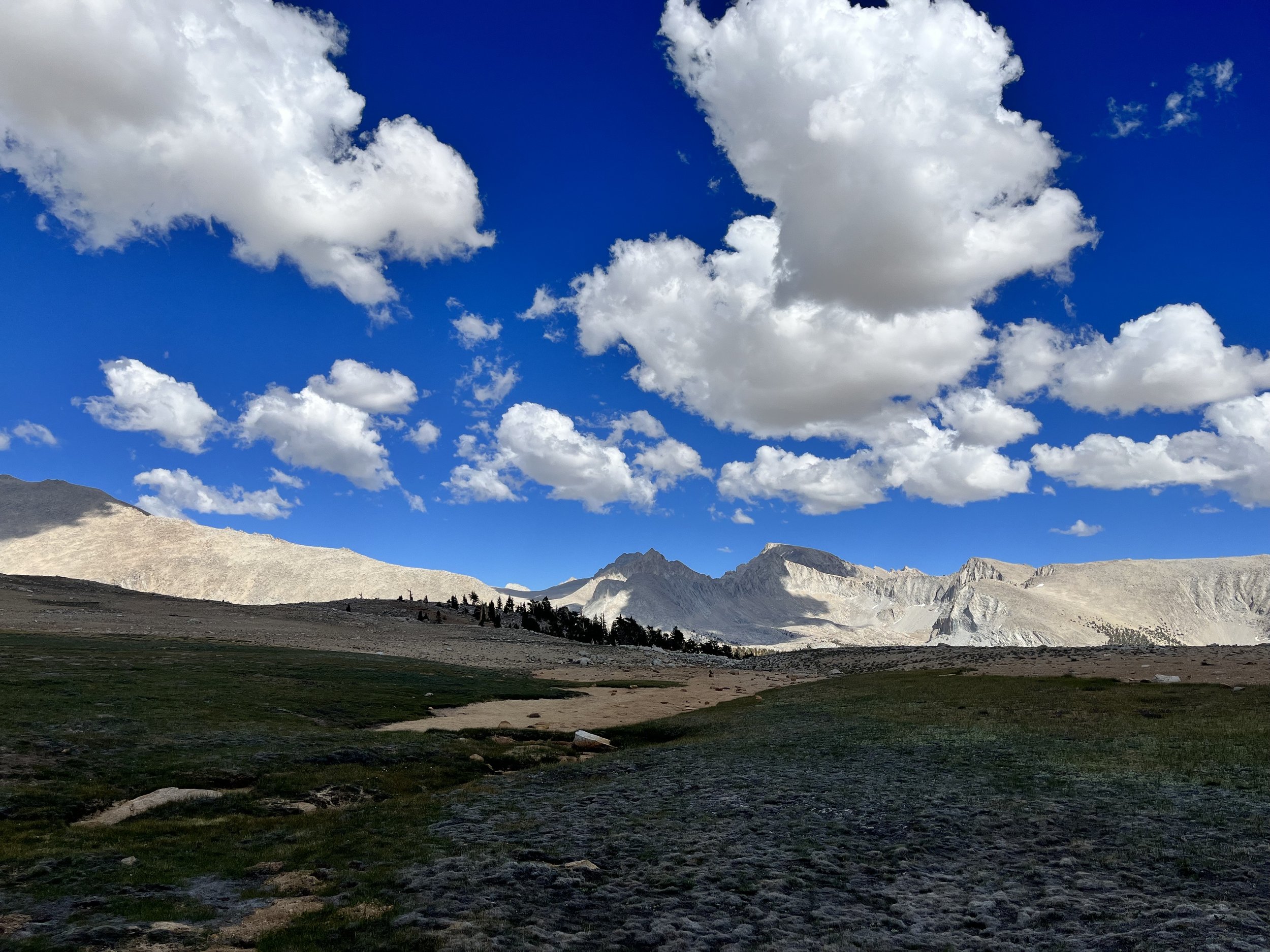May, 2024
Spring
“Then it was spring; and in spring anything may happen. Absolutely anything.”
E. E. Cummings
Hello out there!
It’s springtime which means you are reading our second ever Seed Change Strategies seasonal newsletter. We have had a busy few months and are eager to tell you about what we’ve been working on, and to share a taste of what we’ve been eating, reading, and listening to.
Since we last graced your inboxes in January, we have launched a lot of exciting work, traveled for work and play to Telluride, CO, Pisgah National Forest, NC, Spokane, WA, Charlottesville and Warrenton, VA and all over our respective hometowns. We coordinated the first Eastern Food Hub Collaborative Convening since 2020, facilitated connections between food hubs in New Mexico, learned a ton about food rescue in Boston, helped some creative food systems stakeholders in Virginia envision their future, launched the planning of a convening of food systems policy movers and shakers in Eastern North Carolina, and had dozens of meaningful, inspiring, and informative conversations with old and new friends.
It’s been a time of planting, sprouting, and rooting. We have been testing out what we’re good at, trying on new skills and honing old ones, and pushing ourselves to remember our commitments to good process. We’ve tried to pause along the way to take care of ourselves, our relationships, and our desire to keep the big, long term vision of a delicious, just, and resilient food system front and center. It’s been a fun and busy couple of months and we can’t wait to see what these green shoots grow into.
Your friends,
Elizabeth, Ellie and Will
P.S. - Not yet signed-up for our newsletter? Do so here.
We solemnly swear that we’ll never share your email or spam your inbox.
What We’re Cooking Up
Spring gives us so many reasons to rejoice, but one of the top ones has to be the return of fresh spring veggies! Kale, sweet potatoes, soups - we love you. We thank you. But we’ll see you later. Bring me something fresh and crisp and green!
Elizabeth: Fish Tacos and Raw Asparagus Salad
What’s the best way to cook those tender fresh shoots of asparagus showing up at the farmers’ market this month? Don’t. In my opinion few veggies illustrate the difference between local and in-season and not more than asparagus. My favorite way to enjoy it is a raw asparagus salad, like this one adapted from Joshua McFadden’s Six Seasons cookbook. But the catch is, asparagus raw is really only good when it is fresh and in season. Like most salads, you don’t really need a recipe to make this at home. Just take that first-of-the-season asparagus, cut it up at a sharp angle into some narrow slices. Toss it lemon juice, olive oil, salt, pepper, dried chili flakes to taste. Throw in breadcrumbs, toasted walnuts, Parmigiano-Reggiano, and top with mint - adjusting however you please. I could eat the whole bowl by itself, but we served it up with our favorite fish taco recipe. Dinner in under 30 minutes? Means more time to play outside on these gorgeous spring evenings!
Ellie: Cheese Souffle
You know how 99% of the time when you’re eating a frittata and you just wish it were a quiche? Well, I was that way too until I discovered Jacques Pepin’s Maman’s Cheese Souffle. It gives you that satisfying quiche experience without having to mess with pie crust. It’s pretty hard to screw up but the result is so delicious and beautiful. It would be great for a springy Sunday brunch (with Bloody Marys from Back Pocket Provisions, of course). I like to serve it with an herby salad that has lots of radishes, lemon, and flaky salt. Since I’m being super literal and can only think about egg-related foods right now, I also have to shout out my other recent, surprising, ovular favorite- soy cured egg yolks. Never has umami meant so much to me. I stick ‘em on some sushi rice with green onions and furikake and pretend I’m looking at the cherry blossoms in Tokyo instead of DC!
Will: Pasta Primavera with Asparagus and Spring Onion
It’s an asparagus double-feature in this quarter’s SCS newsletter, because I’m doing a lot of farmers-market-driven riffs on Melissa Clark’s Pasta Primavera with Asparagus and Spring Onion. My favorite Richmond farmers market (shout out Birdhouse!) is on Tuesday evenings, and it's my chance to score incredible local produce from my buds at Old Tavern Farm and Amy’s Garden alongside fresh pasta from the inimitable Oro. Lotta name dropping in that sentence - sorry - but the point is: this is a dish where the cook’s job is to source excellent, fresh ingredients and then stay out of their way.
Melissa’s recipe is based around spring peas, snap peas, asparagus, and spring onion, with a note that you can substitute frozen peas if you don’t have fresh ones available. I respectfully disagree. This recipe shines with any combination of soft, fresh vegetables, but frozen substitutes need not apply. Even if all you have is asparagus, that’s still a delicious treat. You can substitute any soft herbs at the end of the recipe, including chives, which I have in my garden year-round.
One last recommendation: I add a half cup of dry white wine alongside the garlic and reduce by half as quickly as possible; then I mount an extra tablespoon of butter before I add the vegetables to the pasta. Now that you have an open bottle of wine, why not pour a glass? You deserve it for supporting small, local farming!
What’s on the Horizon
Photo: somewhere out on the Pacific Crest Trail - anyone else getting psyched for backpacking season?!
This spring, we are gearing up for so much incredible work, and the launch of some new partnerships. All of these projects are rooted in the belief that a paradigm shift within our food system can only be achieved through trusting, facilitated collectivism. From California, to New Mexico, to North Carolina, on up to Boston - we’re continuously inspired by the transformative power of collaboration.
In April, we officially kicked off the Food Rescue Assessment for the City of Boston Office of Food Justice, an in-depth collaborative research project to help them understand the landscape of food rescue and recovery, and through participatory research, develop recommendations for how to improve processes and outcomes. We’ll be heading to Raleigh, NC tomorrow to facilitate a meeting of Councils of Government and food systems stakeholders to help them align around sustaining regional collaboration. We’ll be continuing to provide backbone support to our friends in the Eastern Food Hub Collaborative, including launching working groups that will allow members to dig in deep on topics like tech, food access programs, and policy. We’ll also be working closely with the Mid-Atlantic Food Resilience and Access Coalition, helping this network that started as an emergency COVID response implement a strategic plan and transition to a sustainable 501c3. Finally, we’ll be rounding out our work with support to some applicants to the Local Agriculture Marketing Program (LAMP) grants to make the application process as stress free, educational, and strategic as possible. Throughout all of our work, the thread of collaboration, relationship-building, and thinking systemically is constant.
Shout Out! 📣 Full Bloom Fundraising
Could you use some help with grant writing and fundraising? Who couldn’t?!
Do you know our good friend, Eva Agudelo? If no, you definitely should. Eva is a brilliant badass, who recently, (like yours truly) decided to make it on her own in the wild world of independent consulting in food systems. Eva just launched Full Bloom Fundraising and if you need some help in that arena we recommend you give Eva a call.
Here’s a little more about Full Bloom’s work: Grounded in decades of real world experience in small and medium nonprofits - with a specialization in community-based food systems projects - Full Bloom Fundraising's holistic and specialized approaches effectively channel resources to your organization's mission, vision, and goals. Let Full Bloom nurture your growth at every stage. Find out more and sign up for a 15 minute discovery call at: www.fullbloomfundraising.com.
Mixed Tape
Whether you’re planting seeds, out walking the dog in the sunshine, or typing furiously away at that grant proposal (we see you!) we hope that these tunes will brighten your day. From our earbuds, to yours, with love → the Seed Change Strategies Spring Playlist.
P.S. - We toyed with the idea of dropping this playlist entirely to replace it with Beyonce’s newest opus, COWBOY CARTER. We didn’t but if you haven’t listen to it then please put it on right away.
Learning Corner - The Foodies Guide to Capitalism by Eric Holt-Giménez
“Calls to fix ‘a broken food system’ are misplaced. To call the system broken is to believe it once worked well for people, the economy, and the environment. This would mean ignoring the three centuries of violence and destruction characterizing global food systems… The food system is not broken; rather, it is working precisely as a capitalist system is supposed to work.”
Will here. Can you explain “relative surplus value,” or how exploitative labor practices in the Global South change food prices here in the US? What happened during the Green Revolution? What is “the tragedy of the Commons,” and where does it fall short?
In The Foodie’s Guide to Capitalism, Eric Holt-Giménez introduces us to the history and economic theory that brought us to where we are today (or at least, brought us to 2017 when the book was published). Holt-Giménez anchors his explanation of capitalism in the food system on world history, focusing particularly on farm and labor-led movements worldwide.
This book is intended to be approachable for a reader who doesn’t have a background in these concepts. I want to be real, though: it’s a tough read sometimes. Holt-Giménez delves deep into political and economic theory, and I won’t pretend I didn’t have to reread a few sections, and that I didn’t put this down and come back to it a few times.
But I needed this. I don’t know this stuff - the history of agricultural movements and how they inform and were informed by the growth of Western capitalism - and I need to, to be an effective agent of systemic change. I don’t know your life, either, but if you’re reading this newsletter, it seems likely you need to know this stuff, too. It’s also fascinating; and provides a new (to me) language and framework for seeing our position in history and how it could be different.
Holt-Giménez offers an entry point into the complexities of our economic system. This book explores the trees and the forest, deepening my understanding of concepts I thought I had figured out, and providing a much-needed introduction to cultural histories and global macroeconomic policies that shape the world we live in today.
Thanks for reading!
We’ll hope to see you around. Feel free to slide into our DMs if you want to find a time to connect, have a recommendation for the next book we should read, or otherwise just want to hang out and talk about food systems.






